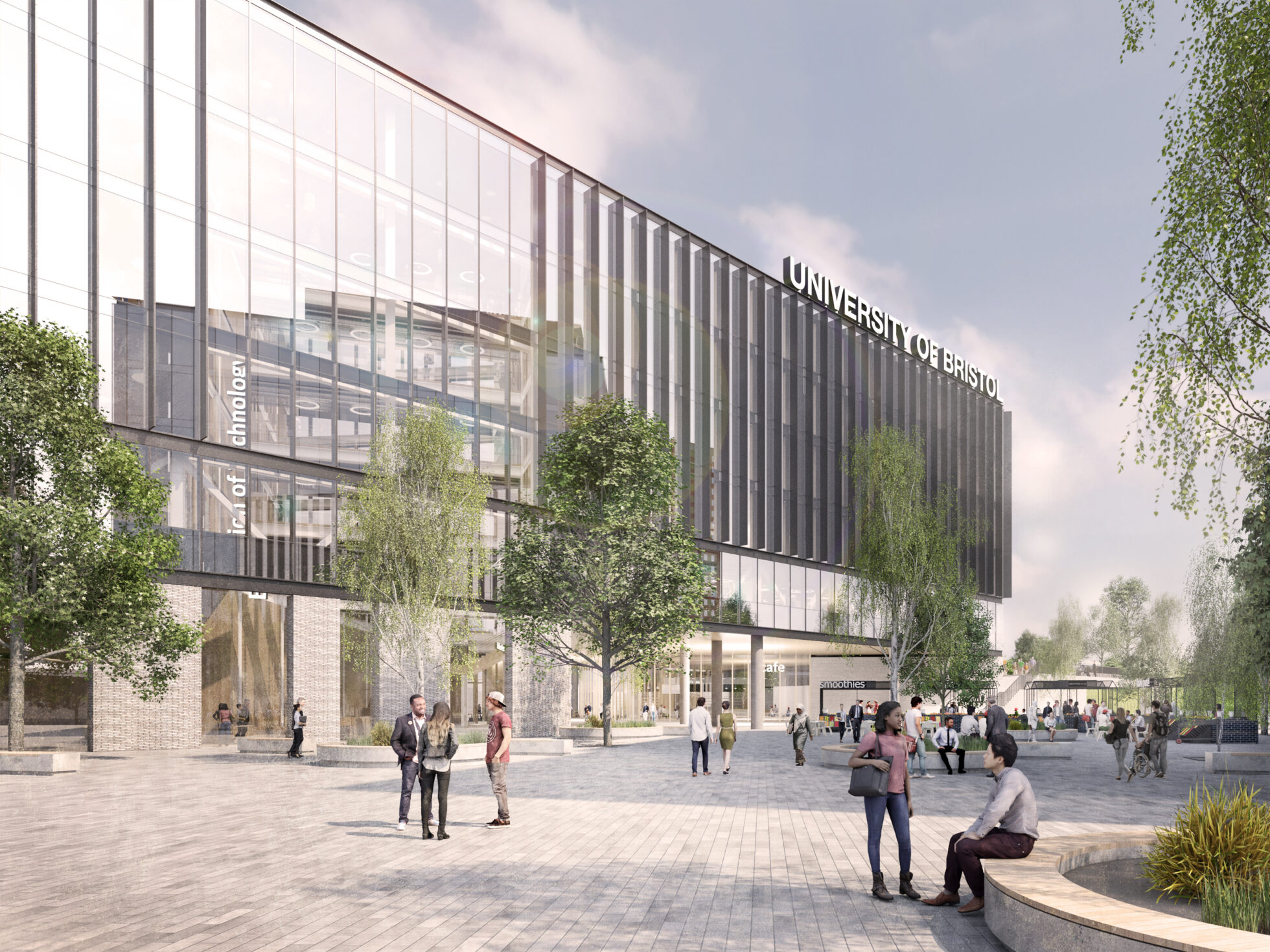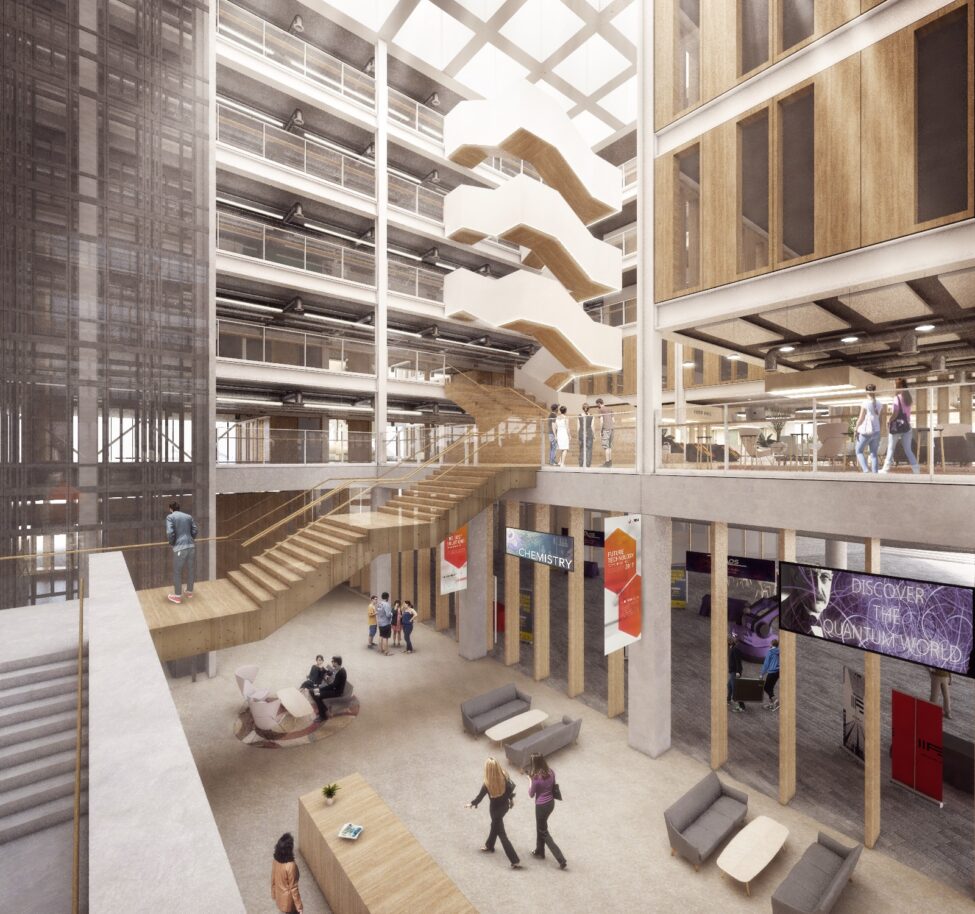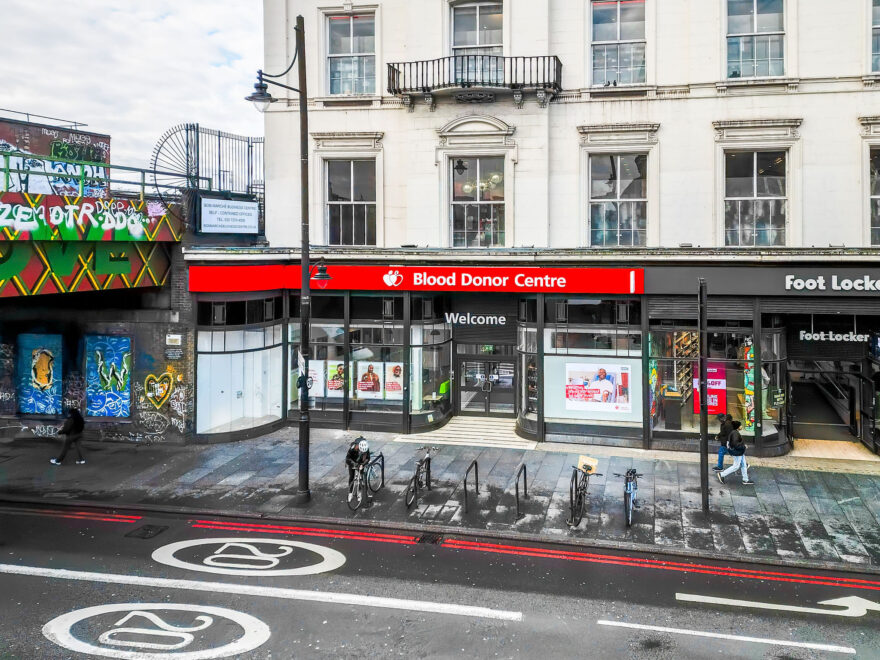Perfect Circle Appointed to Deliver £300m University of Bristol Enterprise Campus

Perfect Circle has been appointed by the University of Bristol to design its new Temple Quarter Enterprise Campus. The campus will bring new life to a neglected area of the city centre, benefiting both students and the city of Bristol.
The development will include academic teaching space and a student village that will accommodate 1,500 students, as well as a gym and health centre. In addition, there will be the world’s first open access Quantum Technologies Innovation Centre. The project will provide an extensive public realm focused on improving neglected areas of the harbour, providing new cycle paths and walkways, public spaces, cafes and other facilities.
The team includes globally recognised architecture firms Feilden Clegg Bradley and Allford Hall Monaghan Morris, engineering consultants Buro Happold and ARUP and international landscape architecture consultants Grant Associates, all of whom have local teams based in Bristol and Bath.
Perfect Circle delivers the broadest range of consultancy services available to the public sector via the public sector owned built environment specialist Scape Group’s National Built Environment Consultancy Services (BECS) framework.
Scape Group is a public-sector organisation, dedicated to creating ongoing efficiency and social value via the built environment. Perfect Circle was appointed by Scape in 2016 to deliver the the BECS framework.

A CGI of what the atrium will look like within the Temple Quarter Enterprise Campus
Guy Orpen, Deputy Vice Chancellor of the University of Bristol said: “We are excited to be working with such an experienced design team with an understanding of creating quality places that people want to spend time in, spaces that are inspiring, sustainable and welcoming. Over the coming months we will be working with the architects, local businesses and communities to develop our plans further to transform this derelict landmark site into a vibrant new part of the city centre.”
Mark Claridge, Director, AECOM, said: “We are delighted to be working with the University of Bristol to build upon our long-standing relationship and deliver the University’s most significant development in recent times. AECOM will work collaboratively, building on their combined experience of working with the public sector, to deliver the scheme. The building designs will be forward-thinking and socially conscious, breathing new life into the enterprise zone and acting as a catalyst for future developments.”
Victoria Brambini, Managing Director of Scape Procure, commented: “The commissioning of Perfect Circle to deliver this key project for the University of Bristol will provide a fantastic combination of specialist skills and expertise underpinned by a commitment to collaboration and social value delivery."
"The team is extremely experienced at delivering projects of this scale and has an excellent track record of creating new employment opportunities and apprenticeships for local people, ensuring that the positive impact of the development will be felt both during and after the project.”
Victoria Brambini | Managing Director at Perfect Circle
The Temple Quarter Enterprise Campus will focus on digital technologies, the innovation they drive and how they’re used by people, organisations and industry to address real world urban challenges.
Outline plans for the campus have already been submitted to Bristol City Council to show the scale of development and access routes. Consultation on detailed design proposals is likely to follow later in the year. Bristol City Council has recently started work to prepare for the demolition of the former Royal Mail sorting office next to the Bristol Temple Meads Station to make way for the new campus.
Other projects being delivered through Scape’s BECS framework include client schemes for the London Borough of Lewisham, the University of Edinburgh and the City of London Corporation.
Student engagement is a key performance indicator and to date there has been over 5,500 hours spent on lectures and work experience with schools, colleges and universities, in relation to projects delivered through the BECS framework. The projects have created 72 new jobs and 54 apprentices have worked on the commissions.

